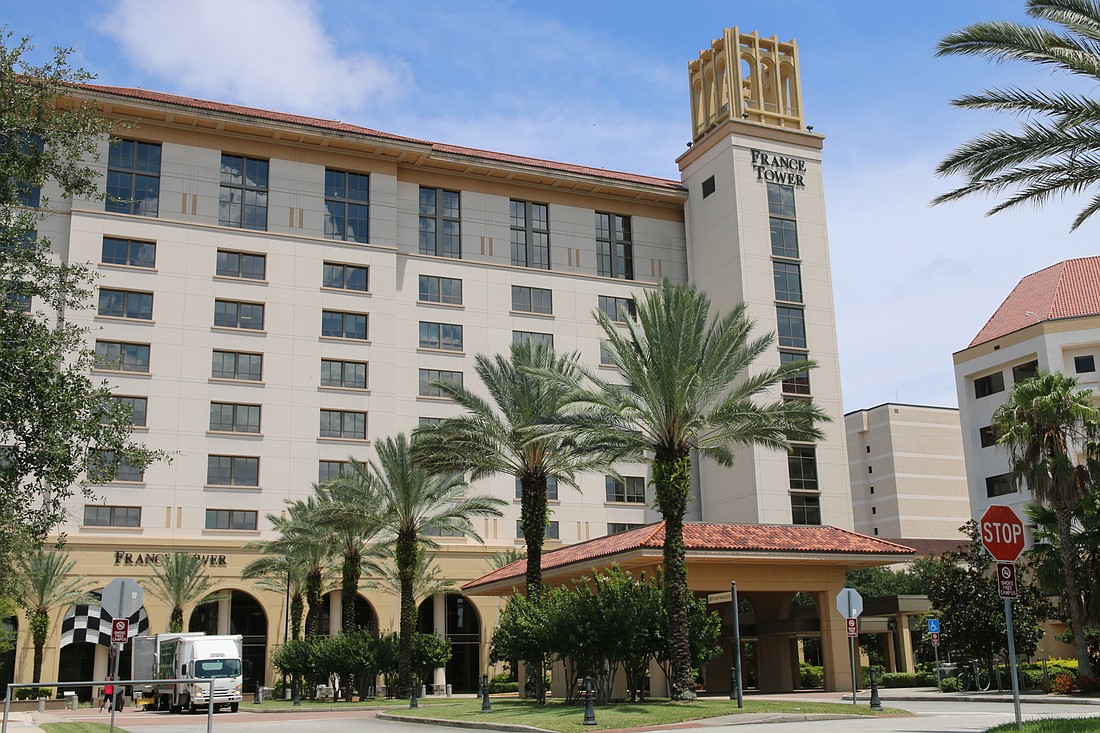- December 15, 2025

For the past year and half, health care workers have dedicated countless hours to treating COVID-19 patients, often putting their own lives on the line. That hasn't stopped.
And while several organizations and community members have showed their support by gifting lunches, holding parades and lots of banners expressing their thanks, there is one more thing the public can do: Get vaccinated.
Cherene Sipe, a nurse manager of critical care at Halifax Health Medical Center, has had a front row seat to how the latest wave of COVID-19 infections has impacted the health care system.
“We have seen an uptick in COVID patients, so half of our census in the medical ICU is COVID-related patients," Sipe said. "We also have a biocontainment unit that we do have COVID patients there that are critically-ill as well.”
On Aug. 6, Halifax Health reported having 148 COVID-19 patients under its care. This figure is higher than any prior wave of infections, and on Monday, Aug. 9. the Florida Health Department reported a three-day average daily case count of 18,795.
The majority of the patients coming into the hospital are unvaccinated, and some have expressed regret over not taking the vaccine.
“If they could go back in time and get their vaccine, I think that’s one thing that they would have done," Sipe said.
In the past COVID-19 waves of infections, hospitals generally knew what to expect regarding a patient's chance of needing critical care. The virus tended to be more dangerous to those 65 years and older, or people with existing illnesses.
The delta variant has changed that.
“It seems that anyone is fair game this time," said Mary Jo Allen, vice president and chief nursing officer at Halifax Health.
Hospitals are seeing younger patients get admitted, and they are much sicker. The variant is also considered to be much more contagious, according to the the Centers for Disease Control and Prevention.
"This is your 30-year-old coming in, healthy, a parent to a number of people, and there’s nothing wrong with them other than now they have COVID,” Allen said.
The CDC — which is now recommending everyone wear a mask in public indoor places, regardless of vaccination status — reports that the delta variant might also cause more severe illness than previous strains in people who are unvaccinated.
What transpired after the CDC lifted its mask recommendations for vaccinated people back in May, Allen said, is that unvaccinated individuals also stopped wearing masks. Couple that with the lack of social distancing and hand washing, and infections responded in kind.
If people choose not to get vaccinated, Allen said they have to then choose to wear a mask, wash their hands and practice social distancing. Still, getting a vaccine remains the best way to fight the new wave of infections.
“We need the community to help us, because right now, if you were to get into a car accident, our waiting room is full, and a lot of it is covid, and it’s unvaccinated people in our community," Allen said. "We’re overloaded — all hospitals are.”
Halifax Health is not alone in its surge of new COVID-19 patients. During AdventHealth's morning briefing on Aug. 5, Dr. Eduardo Oliveira, executive director of Critical Care Services, said they had about 1,350 COVID patients hospitalized in its central Florida division, which includes Orange, Osceola, Seminole, Lake, Polk, Volusia and Flagler counties.
Adventhealth reported it does not have data available on the number of patients being treated at its Volusia and Flagler County hospital facilities.
Adventhealth is currently in "black status," meaning non-emergency surgeries are being deferred, a move Oliveira said is making a difference as staff shortages remain an issue. Everyone, he said, is tired of COVID-19, but what is frustrating for health care workers is that this wave could have been prevented.
“Because we know that most patients that we care for are unvaccinated, we know that this could have been prevented," Oliveira said. "It’s difficult for the staff to know that they are treating for an illness that we fought so hard initially to hold on and care for patients so we would have time to have a vaccine so we could protect everyone. We gave that time, we had that time, but still unfortunately, not everyone took the opportunity to get vaccinated.”
The doctor said the more people work to protect themselves, the less COVID-19 will continue to impact their lives. When asked about what health care workers had heard from their patients, Oliveira's response was based on the words not said.
“It’s not as much what we hear, but what we don’t hear — it’s the silence," Oliveira said. "Obviously, you are in a very dire situation and you can sense on the patient’s face, on the family’s behavior, that they wish they had gotten vaccinated.”
Halifax Health still has beds available. Nurses still have personal protective equipment. If people need care, Sipe said, she and her fellow nurses are ready.
"We’re open," she said. "We want them to come and be seen for whatever they need to be seen for, but the biggest message is to please help us help you by getting vaccinated.”
A lot of the misconceptions surrounding the COVID-19 vaccine are political, and Allen said it's unfortunate people refusing the vaccine are not making that decision based on medicine. As a community, we need to do a better job at fighting misinformation, she added.
“As long as we continue to report those, or allow that to go out, then we’re going to continue to have people that have this opinion," she said. "Until their loved one, or their neighbor or someone they know personally young dies — I’ve seen that tune change here and we have had people come in who are getting ready to be intubated saying, ‘Can I get the vaccine?’ It’s too late.”